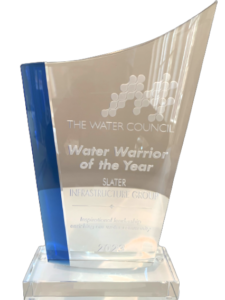The outbreak of a respiratory illness, known as COVID-19, continues to spread around the world.
With one of the primary pieces of advice to regularly wash hands thoroughly to prevent the transfer of the disease, it means more than ever that the provision of clean and safe water by utilities is vital to stop the disease spreading.
During times of crisis, various questions are being asked over whether COVID-19 can be transferred via water and wastewater.
Global water sector professional bodies, institutions and associations have been quick to publish fact sheets and guidance documents to calm any concern and help cut through the sea of misinformation and fake news being produced and circulated.
Below we have brought together the highlights from various sources in one place.
The facts about COVID-19 and drinking water
A technical brief from the World Health Organisation (WHO) was released in early March for water and sanitation practitioners and providers.
There is no evidence about the survival of the COVID-19 virus in drinking water or sewage, WHO said, adding that the two main routes of transmission are respiratory or contact.
As an enveloped virus, COVID-19 is “not robust”, less stable in the environment and is more susceptible to oxidants, such as chlorine.
Conventional, centralised water treatment methods that use “filtration and disinfection should inactivate the COVID-19 virus”, the Organisation added.
In areas where centralised treatment is not present, “household water treatment technologies” including boiling, or using high-performing ultrafiltration or nanofiltration filters, solar irradiation, and, in non-turbid waters, UV irradiation and appropriately dosed free chlorine”, should be used.
The Centers for Disease Control and Prevention (CDC) remarked that the COVID-19 virus has not been detected in drinking water.



